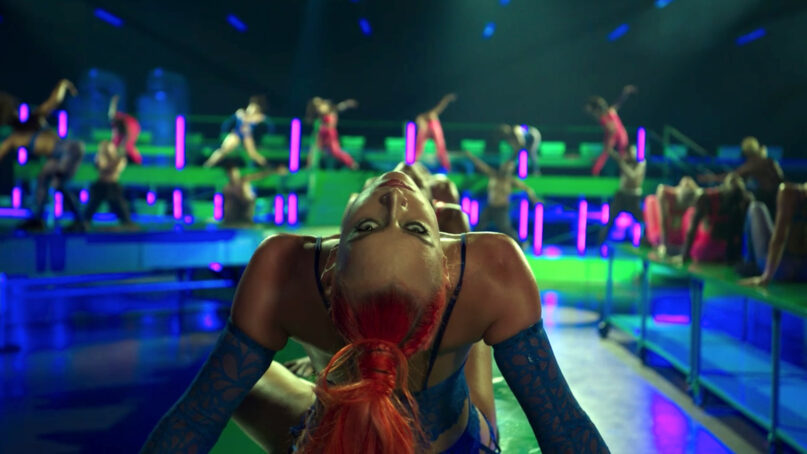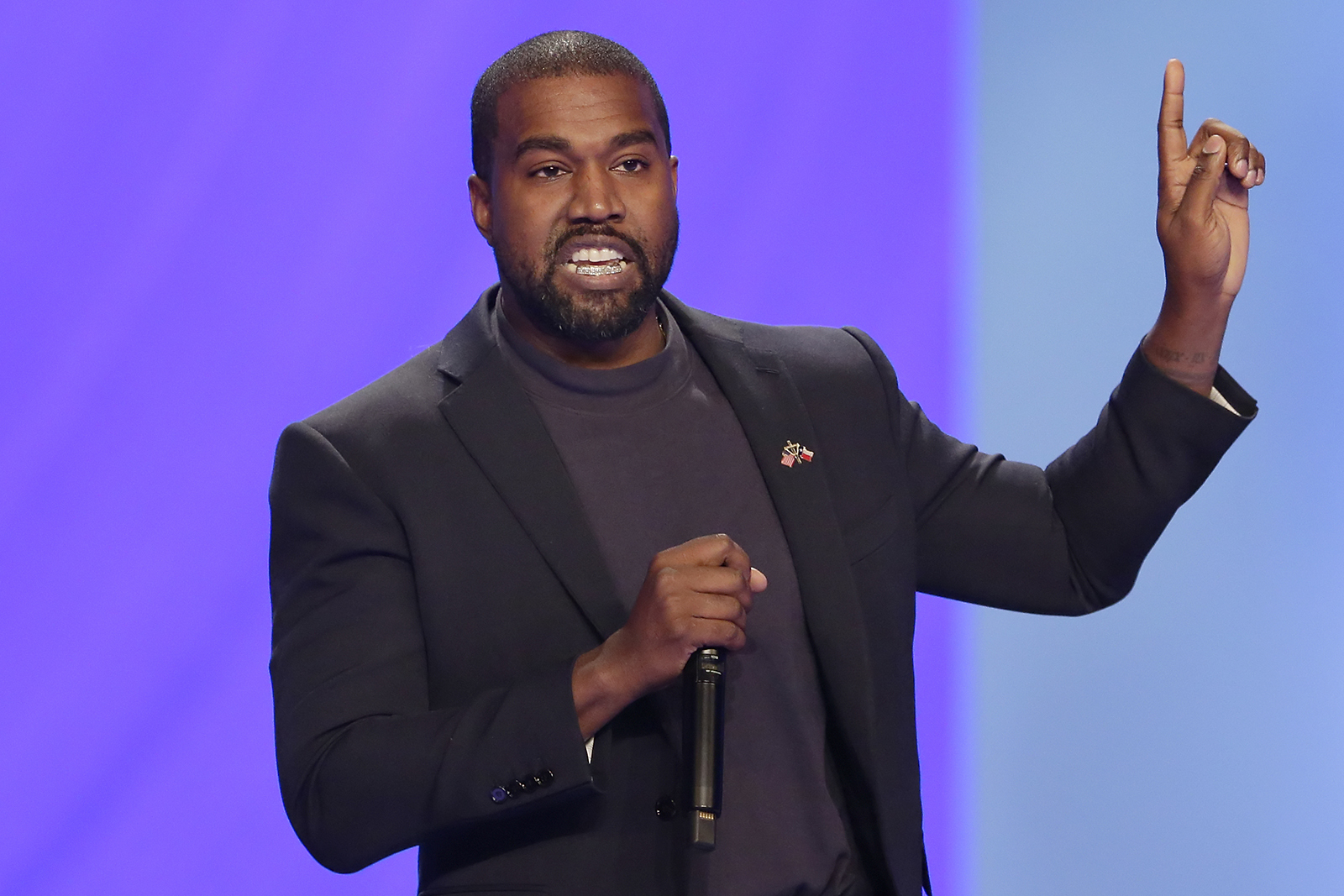
Kanye West answers questions from pastor Joel Osteen during a service at Lakewood Church, in Houston, on Nov. 17, 2019. (AP Photo/Michael Wyke)
(RNS) — Religion and pop culture often make for strange bedfellows, each obsessed with — and repulsed by — the other.
Why would 2020 be any exception?
As in most years, religion ended up in many of the films, movies, music and TV shows released in 2020. Beyonce’s “Black Is King” drew imagery from both Christianity and traditional African spirituality. A new season of “Ramy,” the first American television show about a Muslim family, examined how purity and modesty survive in Western culture. A Pulitzer-nominated play, “Heroes of the Fourth Turning,” explored tensions between Trumpism and conservative Catholicism. And the second season of “The Mandalorian” surprisingly echoed religious tropes.
But more unexpected were the “in real life” examples of pop culture figures injecting themselves into faith matters, or deploying faith in ways we’re not used to. Here are five of the more memorable religion and culture clashes of 2020:
Kanye West ran for president, saying ‘God told me to’
According to a July interview in Forbes magazine, West, the author of the 2019 album “Jesus Is King” who staged several “Sunday Services” last year that mixed gospel hymns with rap music, declared his candidacy after hearing a divine command. Though his campaign never really got much momentum, the multiple Grammy winner hinted he may take another run at the Oval Office in 2024. But that, too, is up to God, he said.
“Let’s see if the appointing is at 2020 or if it’s 2024 — because God appoints the president,” West told Forbes. “If I win in 2020 then it was God’s appointment. If I win in 2024 then that was God’s appointment.”
A French-language film sparked outcry among conservative religious groups
The French movie “Mignonnes,” released as “Cuties” in the U.S., provoked widespread concern after it premiered on Netflix in September.
The film, which earned Maïmouna Doucouré the World Cinematic Directing Award at the Sundance Film Festival last January, told the story of a Muslim girl from an immigrant family who falls in with a group of girls obsessed with what Sundance describes as the “age-inappropriate dance routines” they see online.
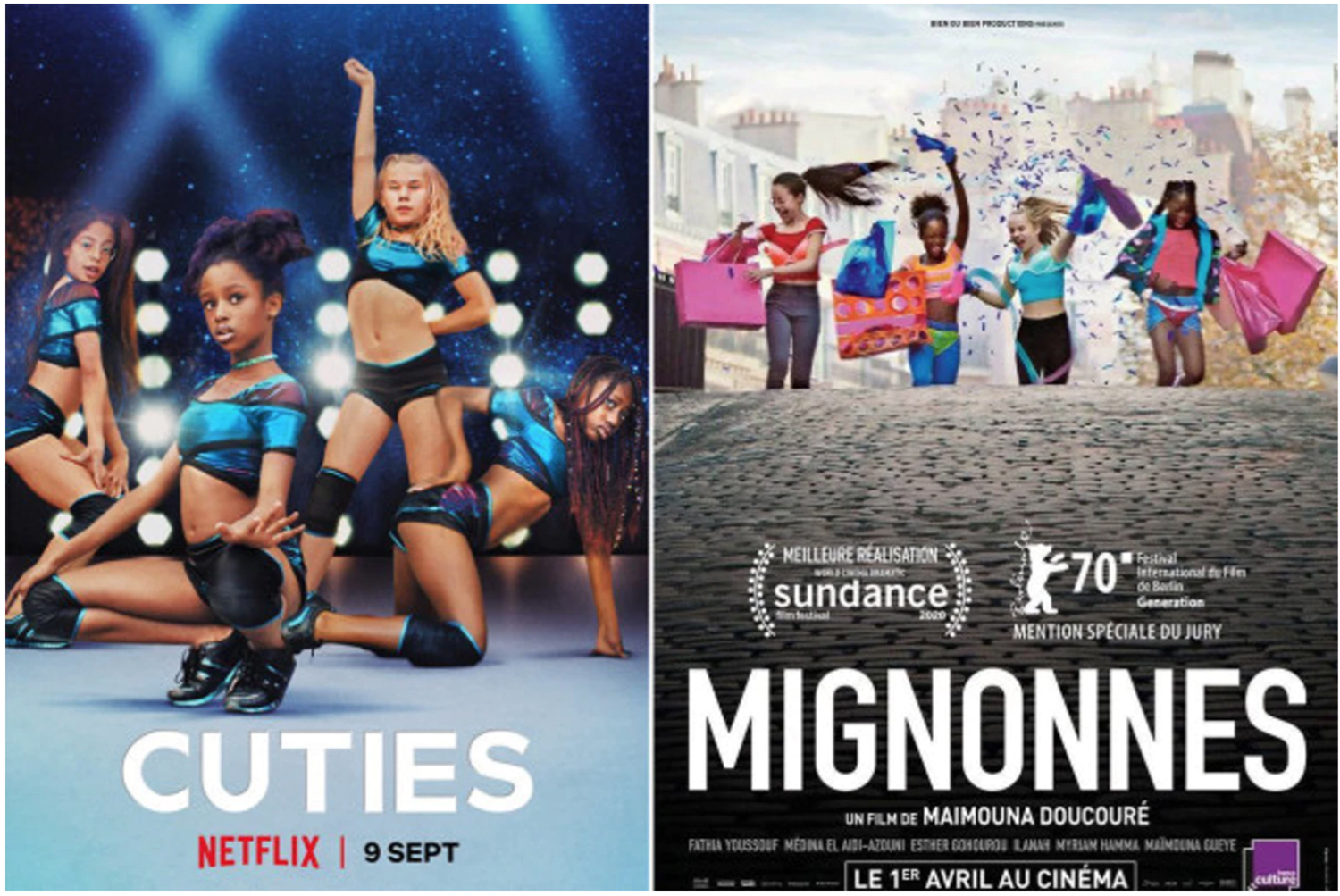
The Netflix poster for “Cuties,” left, and the French version, right. Courtesy images
Critics of the movie questioned whether it was appropriate to ask young actors to perform the very dances it is supposedly denouncing, which, they said, sexualized young girls and bordered on child pornography.
Religious groups joined others in a social media campaign to #CancelNetflix and some U.S. lawmakers asked the Department of Justice to launch an investigation into whether the film violated laws against child pornography. One Islamic group also argued the film’s depictions of Islam range “from the stereotypical to the offensive.”
Doucouré was surprised by the backlash. “I’m hoping that these people will watch the movie now that it’s out,” she told the website Zora, adding, “I’m eager to see their reaction when they realize that we’re both on the same side of this fight against young children’s hypersexualization.”
RELATED: ‘Ramy’: A TV show for those who still care about religion
Rihanna dances in lingerie to a song quoting an Islamic hadith
The popular singer, whose fashion brand, Fenty, has been applauded for its championing of diversity, faced backlash in October for playing “Doom” by Coucou Chloe during a Savage X Fenty lingerie show. The 2017 song includes a sacred Muslim text from a hadith about the Day of Judgment.
For many Muslims, the juxtaposition of an Islamic hadith — a saying of the Prophet Muhammad — and women strutting in revealing lingerie was a little too jarring.
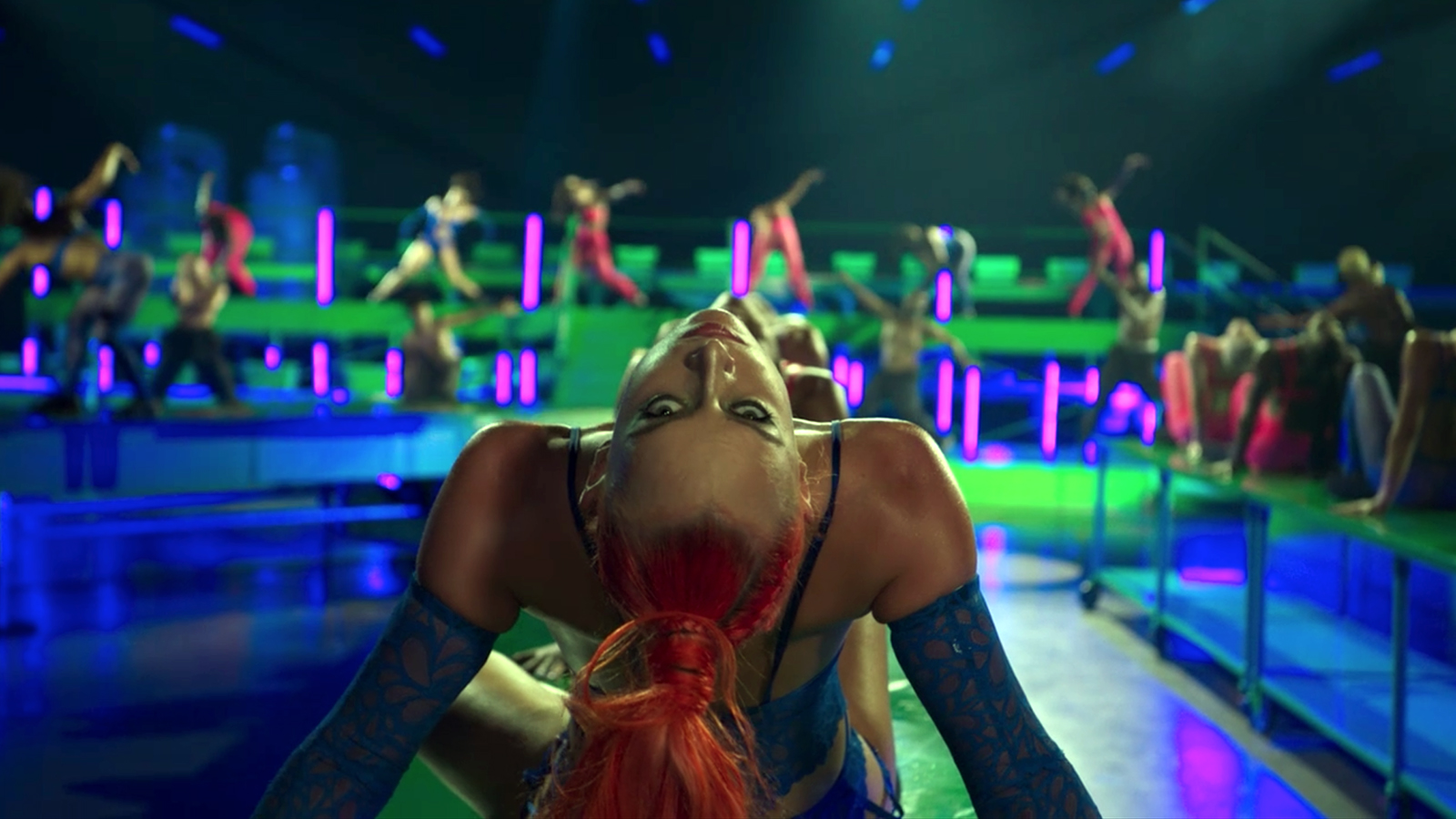
Dancers perform during the Savage X Fenty Show Vol. 2, which was streamed on Amazon Prime. Video screengrab
Rihanna quickly apologized, calling the use of the song “irresponsible” and an “honest, yet careless mistake” in an Instagram post.
This wasn’t the first time Rihanna has been accused of being “disrespectful” toward Islam. In 2013, she was asked to leave a mosque in Abu Dhabi after staging an “inappropriate” photo shoot.
Justin Bieber, Selena Gomez cut ties with Hillsong pastor Carl Lentz after affair
In November, “celebrity pastor” Carl Lentz was fired from the Hillsong NYC megachurch after admitting to an extramarital affair. His ouster prompted a firestorm of tabloid coverage of Lentz, his wife, his mistress, his former church and his relationships with the more famous of his congregants. Most notably, Justin Bieber and Selena Gomez, who have both reportedly cut ties with Lentz and, at least for Gomez, with Hillsong.
Lentz was one of a number of pastors GQ Magazine has described as “hypepriests” who lead churches frequented by celebrities. Friends and congregants included Gomez, Bieber and his wife, Hailey Baldwin Bieber, as well as the Jenner sisters.

Carl Lentz appears during an interview on Oct. 23, 2017, in New York. Lentz, the pastor from global megachurch Hillsong, who once ministered to Justin Bieber and a bevy of other celebrities and sports stars, has been fired. He acknowledged on Instagram that he cheated on his wife. (AP Photo/Bebeto Matthews, File)
Lentz, along with Joel Houston, founded the Australian megachurch network’s outpost in Manhattan in 2010 and quickly drew attention for the long lines of young, hip New Yorkers who lined up to attend. Lentz baptized Bieber, according to GQ, in the bathtub of Tyson Chandler, then-member of the New York Knicks.
Since his firing, Lentz reportedly sold his New Jersey home, moved to California with his wife and children and began intense therapy.
RELATED: Carl Lentz and the ‘hot pastor’ problem
Taylor Swift’s ‘witchy’ new album fueled speculation about her interest in the craft
In mid-December, one Swiftie wrote on Twitter: “There’s a lot of plot twists in 2020 but I have to say I didn’t count on Taylor Swift trying to turn me into a witch.”
The 10-time Grammy-winning singer-songwriter’s second surprise album of 2020, “Evermore,” has caused more than a few people to speculate about whether she now identifies as a witch.
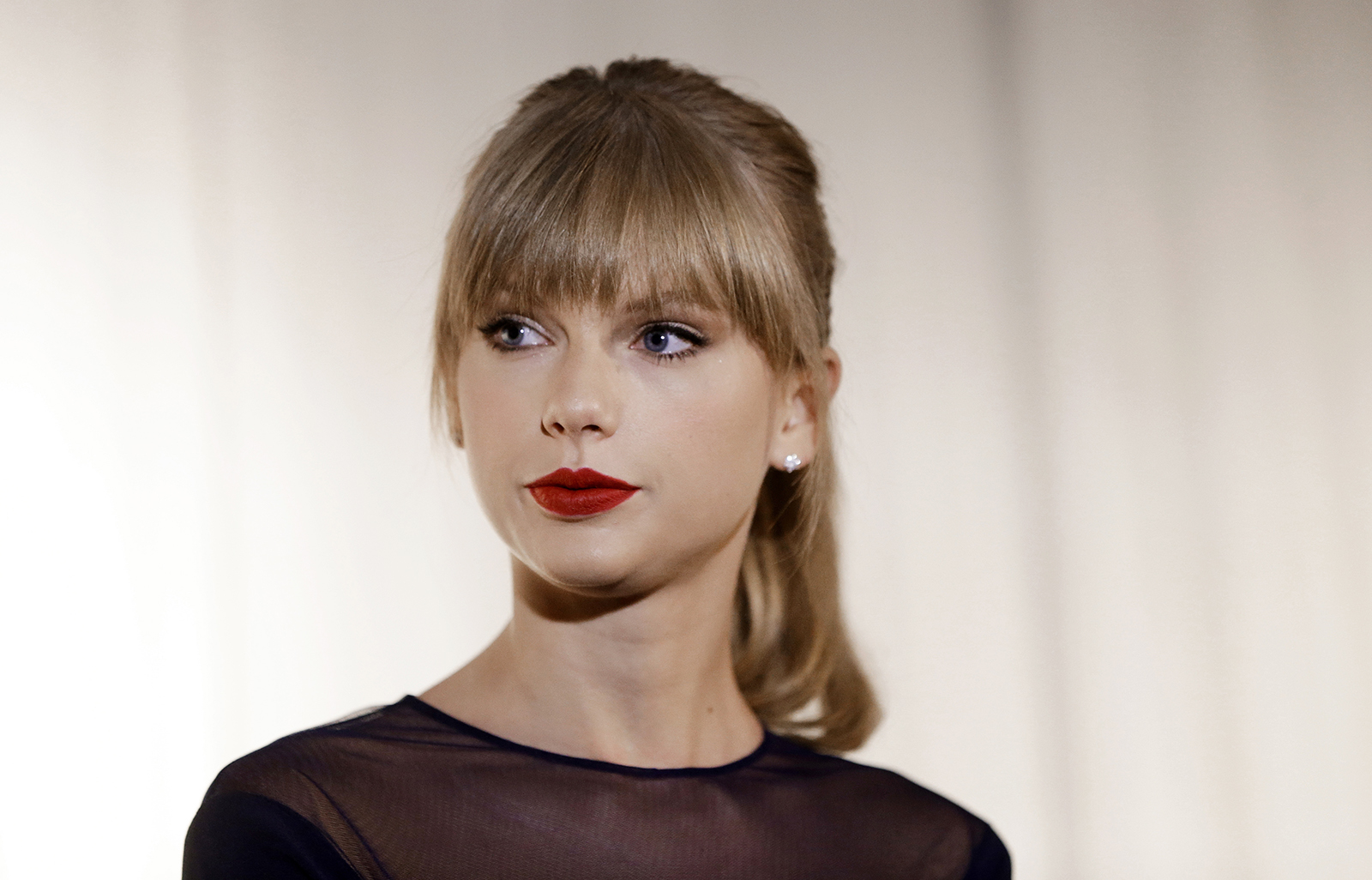
In this Oct. 12, 2013, file photo, Taylor Swift appears at the Country Music Hall of Fame and Museum in Nashville, Tennessee. (AP Photo/Mark Humphrey)
Exhibit A is the music video for “Willow,” the album’s first single, in which Swift follows a magical thread through a dark, wintry forest. In one scene, she joins a group of cloaked figures dancing in a circle around a swirl of glowing orbs.
Swift has done her part to fuel the witchy theories, saying on Twitter that the song “sounds like casting a spell to make someone fall in love with you” and has since released several “witch”-themed “Willow” remixes.
Some say that Swift’s references are simply an expression of the often witchy “cottagecore” aesthetic, closer to folklore than paganism. But Ed Hubbard of Witch School told Religion News Service after listening to “Evermore” he believes Swift has declared herself a witch.
Dilshad Ali and Jack Jenkins contributed to this story.
